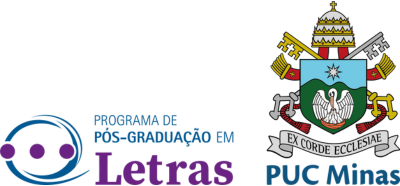Variação na aquisição fonológica: uma abordagem da Teoria da Otimidade Conexionista
Palavras-chave:
Variação, Teoria da Otimidade, Conexionismo.Resumo
Desde o seu surgimento na década de 1990, a Teoria da Otimidade (OT) tem sido aplicada à análise de dados que evidenciam variação lingüística, considerando diferentes propostas. Ao contrário de modelos estritamente gerativos, a Teoria da Otimidade Conexionista (COT) tem tornado possível explicar a variação lingüística de uma maneira diferenciada. Neste artigo, serão analisados os dados longitudinais de G., com idade entre 1:0 e 3:9 (anos, meses), em processo de aquisição do português brasileiro, para explicar a variação na aquisição da linguagem, considerando um enfoque conexionista da Teoria da Otimidade e o algoritmo de aquisição gradual proposto por Boersma e Hayes (2001).
Downloads
Referências
ANTILLA, A. Deriving variation from grammar. In: HINSKENS; VAN HOUT; WETZELS. Variation, change and phonological theory. Amsterdam: John Benjamins, 1997.
BATES, E.; GOODMAN, J.C. On the inseparability of grammar and the lexicon: evidence from acquisition. In: TOMASELLI, M.; BATES, E. Language development. Oxford: Blackwell, 2001.
BOERSMA, Paul. Functional phonology: formalizing the interaction between articulatory and perceptual drives. The Haggue: Holland Academic Press, 1998.
BOERSMA, Paul. HAYES, Bruce. Empirical tests of the gradual learning algorithm. ROA, 2001.
BONILHA, Giovana F. G. Aquisição dos ditongos orais decrescentes: uma análise à luz da Teoria da Otimidade. Dissertação (Mestrado em Letras), UCPel, 2000.
BONILHA, Giovana F. G. Aquisição fonológica do português brasileiro: uma abordagem conexionista da Teoria da Otimidade. Tese (Doutorado em Letras), PUC-RS, 2004.
BONILHA, Giovana F. G.; ZIMMER, Márcia. Não há gramática sem léxico: um diálogo entre o conexionismo e a Teoria da Otimidade. Trabalho apresentado no VI CBLA, PUC-SP, out., 2004.
CHOMSKY, N. Lectures on government and binding. Dodricht: Foris, 1981.
CHOMSKY, N. Knowledge of language: its nature, origin and use. Londres: Praeger, 1986.
CURTIN, S. Representational richness in phonological development. Doctoral Dissertation. Univeristy of Southern California, 2002.
GNANADESIKAN, Amalia E. Markdeness and faithfulness constraints in child phonology. ROA 67-0000, 1995.
OLIVEIRA, Carolina Cardoso; MEZZOMO, Carolina; FREITAS, Gabriela; LAMPRECHT, Regina. Cronologia da aquisição dos segmentos e das estruturas silábicas. In: LAMPRECHT,
Regina (Org.). Aquisição fonológica do português. Porto Alegre: Artes Médicas, 2004.
PRINCE, Alan, SMOLENSKY, Paul. Optimality theory: constraint interaction in generative grammar. RuCCs Technical report 2, 1993.
PRINCE, Alan, SMOLENSKY, Paul. Optimality: From Neural Networks to Universal Grammar. Science, v. 275, p. 1.604-1.610, 1997.
REYNOLDS, William T. Variation and optimality. Tese (Dissertation PhD). University of Pennsylvania, 1994.
SMOLENSKY, Paul. The initial state and ‘richness of the base’ in Optimality Theory. ROA – 154, 1996 Disponível em:
<http://ruccs.rutgers.edu/roa.html>.
SMOLENSKY, Paul. Constraint interaction in Generative Grammar II: Local conjunction, or random rules in Universal Grammar. Handout from Hopkins Optimality Theory Workshop/Maryland Mayfest’ 97, Baltimore, 1997.
TESAR, Bruce, SMOLENSKY, Paul. The learnability of Optimality Theory. In: Proceedings od the Thirteenth West Coast Conference on Formal Linguistics, ed. Raul Aranovich, William Byrne, Susanne Preuss and Martha Senturia, p. 122-137, 1993.
TESAR, Bruce, SMOLENSKY, Paul. Learnability in Optimality Theory (long version). ROA – 156, 1996. Disponível em:
<http://ruccs.rutgers.edu/roa.html>.
TESAR, Bruce, SMOLENSKY, Paul. Learnability in Optimality Theory. Linguistic Inquiry 29, p. 229-268, 1998.
TESAR, Bruce, SMOLENSKY, Paul. Learnability in Optimality Theory. Cambridge, MA: MIT Press, 2000.
YOUNG, Stephan; CONCAR, David. These cells were made for learning. New Scientist, nov., p. 2-8, 1992.
Downloads
Publicado
Como Citar
Edição
Seção
Licença
O envio de qualquer colaboração implica, automaticamente, a cessão integral dos direitos autorais à PUC Minas. Solicita-se aos autores assegurarem:
- a inexistência de conflito de interesses (relações entre autores, empresas/instituições ou indivíduos com interesse no tema abordado pelo artigo), e
- órgãos ou instituições financiadoras da pesquisa que deu origem ao artigo.
- todos os trabalhos submetidos estarão automaticamente inscritos sob uma licença creative commons do tipo "by-nc-nd/4.0".


 Português
Português English
English Español
Español
 Italiano
Italiano






